Fats, Oils, Waxes & Phospholipids 1. Fatty Acids. The common feature of these lipids is that they are all esters of moderate to long chain fatty acids. Acid or base-catalyzed hydrolysis yields the component fatty acid, some examples of which are given in the following table, together with the alcohol component of the lipid.

Fatty oils and waxes & photos - Faculty Support Site. These edible oils contain both solid and liquid fats and form an important part of . Following extraction, the oil cake can be used as an animal feed. . The refined oil, or colza oil, is edible and it can be used as a lubricant for delicate machinery. . principally in Mediterranean countries ...
Get Price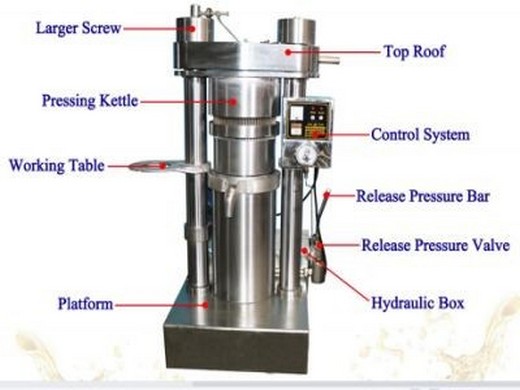
Some of these oils are linked to reducing inflammation and boosting moisture, making them potentially helpful for eczema-prone skin. But there isn enough research yet to support this.
Get Price
Overview of lipids, covering fats and oils, saturated and unsaturated fats, triglycerides (triacylglycerols), phospholipids, and steroids. ... Biology is brought to you with support from the. Our mission is to provide a free, world-class education to anyone, anywhere. Khan Academy is a 501(c)(3) nonprofit organization.
Get Price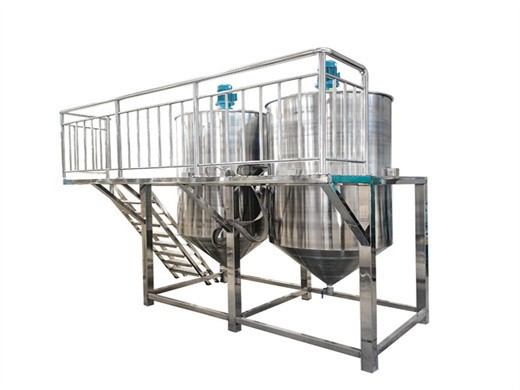
Fabry Disease Information Page. What research is being done? ... -A deficiency) is caused by the lack of or faulty enzyme needed to metabolize lipids, fat-like substances that include oils, waxes, and fatty acids. ... Fabry Support & Information Group. National Fabry Disease Foundation.
Get Price
Weed wax is a common word that categorizes certain types of cannabis concentrates that have a sticky, wax like textures. As the name suggests, wax concentrates resemble the texture of candle wax. However, wax is a very broad term when it comes to the actual types of wax available to dab or smoke.
Get Price
Lipids, as a class of compounds, are insoluble in water but are soluble in other organic solvents.Examples of such solvents include acetone and ether. Waxes, steroids, phospholipids, and fats are the most common types of lipid groups. Fats have glycerol in addition to three fatty acids. The structure of the fatty acids determines whether or not the fat is considered saturated or unsaturated.
Get Price
An Unsurpassed Standard of Excellence Since publication of the first edition in 1945, Bailey's Industrial Oil and Fat Products has remained the standard reference on the chemistry and processing technology of edible oils and fats as well as industrial and nonedible derivative products. No other resource covers the breadth of topics found in Bailey's, and every article will be written by a ...
Get Price
The increasing cost of energy and concerns about the environment have emphasized the need to find new sources of fuel, with the microbial production of high-energy fuels a promising approach. Here ...
Get Price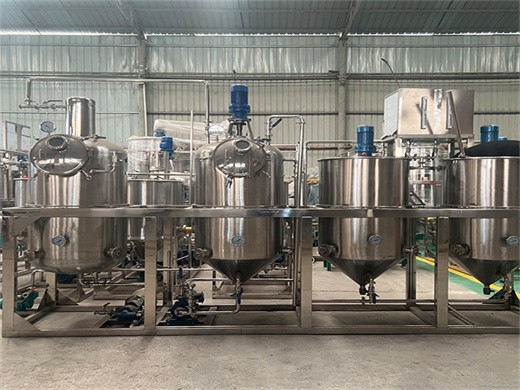
Waxes are esters of fatty acids with long chain monohydric alcohols (one hydroxyl group). Natural waxes are often mixtures of such esters, and may also contain hydrocarbons. The formulas for three well known waxes are given below, with the carboxylic acid moiety colored red and the alcohol colored blue.
Get Price
19.10.2015· Waxes and Oils are lipids, having hydrophobic properties, and are derived from plants and animals. Oil is simply fat with unsaturated fatty acid chains, and is found in liquid form at room temperature. Waxes are very much like fats or oil, except that they are malleable in normal conditions, and have only single long-chain fatty acid, attached to a long-chain alcohol group.
Get Price
Chapter 8 Lipids Waxes Waxes are insoluble in water, and not as easily hydrolyzed as fats and oils. They often occur in nature as protective coatings on feathers, fur, skin, leaves, and fruits. Sebum, secreted by the sebaceous glands of the skin, contains waxes that help to
Get Price
Long-chain isoprenoids are also found in hydrophobic oils and waxes. Waxes are typically water resistant and hard at room temperature, but they soften when heated and liquefy if warmed adequately. In humans, the main wax production occurs within the sebaceous glands of hair follicles in the skin, resulting in a secreted material called sebum
Get Price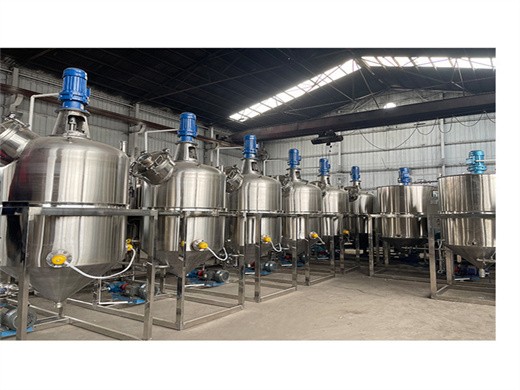
Waxes, esters of fatty acids with fatty alcohols, found in olive oil are esters C36, C38, C40, C42, C44, and C46. As they accumulate in the skin of olives, higher amounts of them can be detected in olive pomace oils rather than in olive oils ( Bianchi et al., 1994 ).
Get Price
Fatty acid metabolism is an attractive route to produce liquid transportation fuels and commodity oleochemicals from renewable feedstocks. Recently, genes and enzymes, which comprise metabolic pathways for producing fatty acid-derived compounds (e.g. esters, alkanes, olefins, ketones, alcohols, polyesters) have been elucidated and used in engineered microbial hosts.
Get Price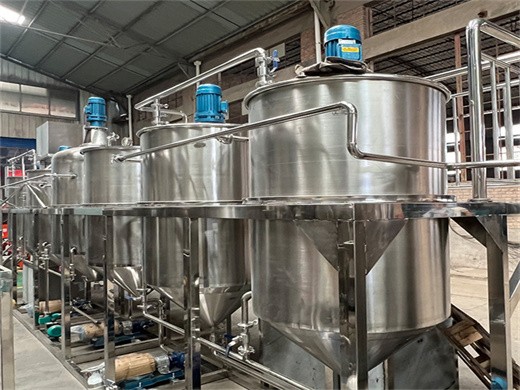
Define waxes. waxes synonyms, waxes pronunciation, waxes translation, English dictionary definition of waxes. n. 1. a. Any of various natural, oily or greasy heat-sensitive substances, consisting of hydrocarbons or esters of fatty acids that are insoluble in water...
Get Price
Overview of lipids, covering fats and oils, saturated and unsaturated fats, triglycerides (triacylglycerols), phospholipids, and steroids.
Get Price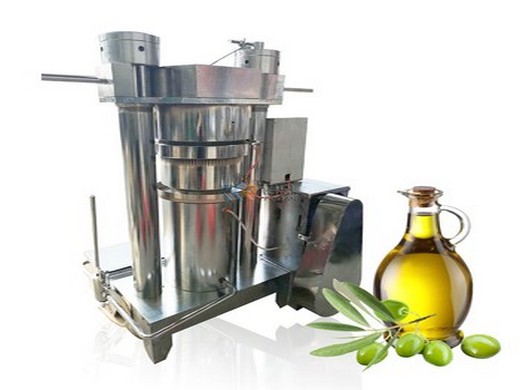
Production and utilization of fats, fatty oils, and waxes in the United States Item Preview
Get Price
A wax is a simple lipid which is an ester of a long-chain alcohol and a fatty acid. The alcohol may contain from 12-32 carbon atoms. Waxes are found in nature as coatings on leaves and stems. The wax prevents the plant from losing excessive amounts of water. Carnuba wax is found on the leaves of Brazilian palm trees and is used in floor and
Get Price
MCQ on Lipids, Fats and Waxes with Answer Key and Explanations by Easybiologyclass 1. Biochemistry MCQ 008 Print less
Get Price
Other more specialized vegetable waxes include jojoba oil, candelilla wax and ouricury wax. Modified plant and animal waxes. Plant and animal based waxes or oils can undergo selective chemical modifications to produce waxes with more desirable properties than are available in the unmodified starting material.
Get Price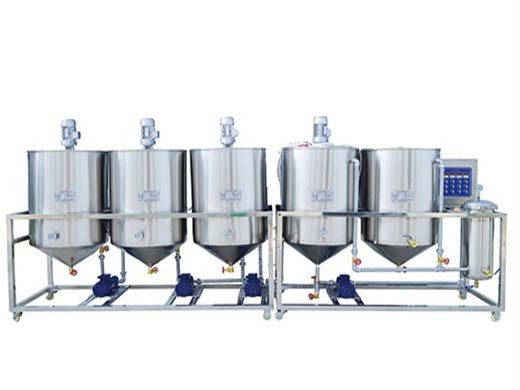
Oils fats and waxes are similar but they all contain one or more what? We need you to answer this question! If you know the answer to this question, please register to join our limited beta
Get Price
C11C Fatty acids from fats, oils or waxes; Candles; Fats, oils or fatty acids by chemical modification of fats, oils, or fatty acids obtained therefrom (11,762)
Get Price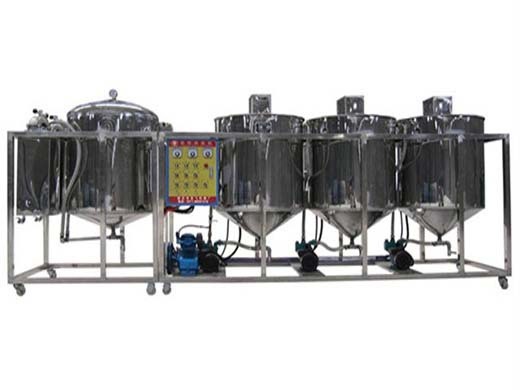
e.g. lanolin, waxes (synthetic waxes C07, C08; mineral waxes C10G) 13 / 00 Recovery of fats, fatty oils, or fatty acids from waste materials (mechanical separation from waste water C02F, E03F) 13 / 02 . from soap stock 13 / 04 . from spent adsorption materials 15 / 00 Solidifying fatty oils, fats, or waxes by physical processes C11B C11C C11C C11B
Get Price
Phospholipids and Biological Membranes. Triglycerides are classified as simple lipids because they are formed from just two types of compounds: glycerol and fatty acids.In contrast, complex lipids contain at least one additional component, for example, a phosphate group (phospholipid s) or a carbohydrate moiety (glycolipid s).Figure 7.13 depicts a typical phospholipid composed of two fatty
Get Price
These curve parameters were shown to have a close relationship with ACL and CPI values usually utilised to describe the natural distribution of wax alkanes. The screening of L. europaeus essential oil for its in vitro antimicrobial activity showed that this oil possesses selectivity towards two gram-negative strains, E. coli and K. pneumoniae.
Get Price
Supplier of Organic and Conventional Specialty Oils, Essential Oils, Butter, Waxes, and Extracts
Get Price
Paraffin wax, used in some candles, is not based upon the ester functional group, but is a mixture of high molecular weight alkanes. Ear wax is a mixture of phospholipids and esters of cholesterol. The waxes with their component alcohols and fatty acids are listed in the table on the left.
Get Price
For more than 50 years, ExxonMobil has worked to be the wax supplier of choice to its customers, providing consistent product quality while ensuring reliable supply for the products it offers. Our product line includes Parvan鈩?fully refined waxes, Prowax鈩?slack waxes, and Waxrex鈩?semi-refined and specialty fully refined waxes.
Get Price
Other more specialized vegetable waxes include jojoba oil, candelilla wax and ouricury wax. Modified plant and animal waxes. Plant and animal based waxes or oils can undergo selective chemical modifications to produce waxes with more desirable properties than are available in the unmodified starting material.
Get Price
Supplier of Organic and Conventional Specialty Oils, Essential Oils, Butter, Waxes, and Extracts
Get Price
Figure 1: Engineered pathways for production of fatty acid-derived molecules from hemicelluloses or glucose and depiction of the synthetic operons used in this study.
Get Price
We use cookies to make interactions with our website easy and meaningful, to better understand the use of our services, and to tailor advertising.
Get Price
Fats, Oils, and Related Compounds (21.1A) Fatty Acids A Comparison of Fats and Oils Hydrogenation of Fats and Oils Soaps Detergents Waxes Glycerophospholipids The Biological Origin of Fatty Acids Prostaglandins (21.1B) Terpenes and Steroids (21.1C) Terpenes Steroids 21.2 Biosynthesis of Lipids Acetyl-CoA (21.2A) Fatty Acids (21.2B) Palmitic Acid
Get Price
FATTY ACIDS FROM FATS, OILS, OR WAXES; CANDLES; FATS, OILS OR FATTY ACIDS BY CHEMICAL MODIFICATION OF FATS, OILS, OR FATTY ACIDS OBTAINED THEREFROM C11C 1/00: Preparation of fatty acids from fats, fatty oils, or waxes; Refining the fatty acids (recovery of fatty acids from waste materials C11B 13/00) C11C 1/02 · from fats or fatty oils C11C 1/04 · · by hydrolysis
Get Price
These curve parameters were shown to have a close relationship with ACL and CPI values usually utilised to describe the natural distribution of wax alkanes. The screening of L. europaeus essential oil for its in vitro antimicrobial activity showed that this oil possesses selectivity towards two gram-negative strains, E. coli and K. pneumoniae.
Get Price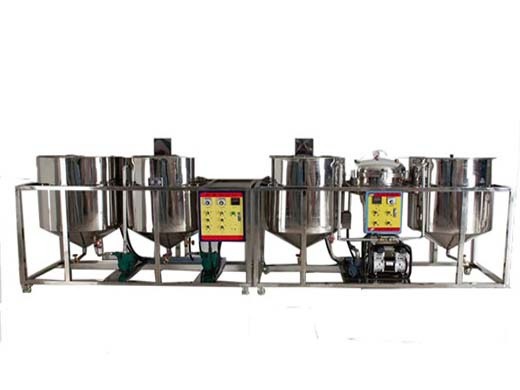
A fat is a solid or semisolid material and an oil is a liquid at this temperature. Both fats and oils are made up of glycerol and two or three fatty acid chains attached to its carbons by way of dehydration synthesis. A fatty acid is a chain of carbon atoms with hydrogen atoms attached at the open bonding sites. If the chain is fully saturated
Get Price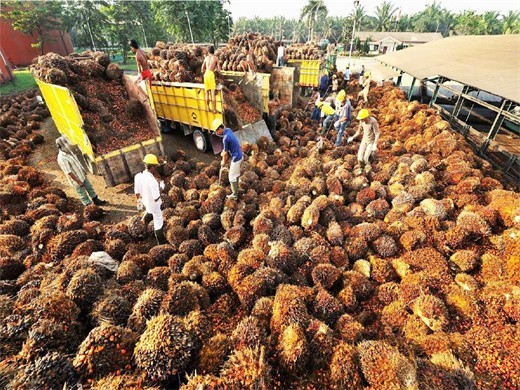
In article number 1900115, Uwe T. Bornscheuer and co-workers describe the obtaining of new variants of the lipase CAL-A displaying higher specificity toward erucic acid than the wild type, and their application for the enrichment of this important fatty acid starting from Crambe oil
Get Price
Lipids and Membranes Chapter 8 . Educational Goals 1. Know the factors that characterize a compound as being a lipid. 2. Describe the structure of fatty acids and explain how saturated, monounsaturated, and polyunsaturated fatty acid structures differ from one another. 3. Predict how the number of carbons and the degree of unsaturation effect the melting points of fatty acids. 4. Describe the
Get Price